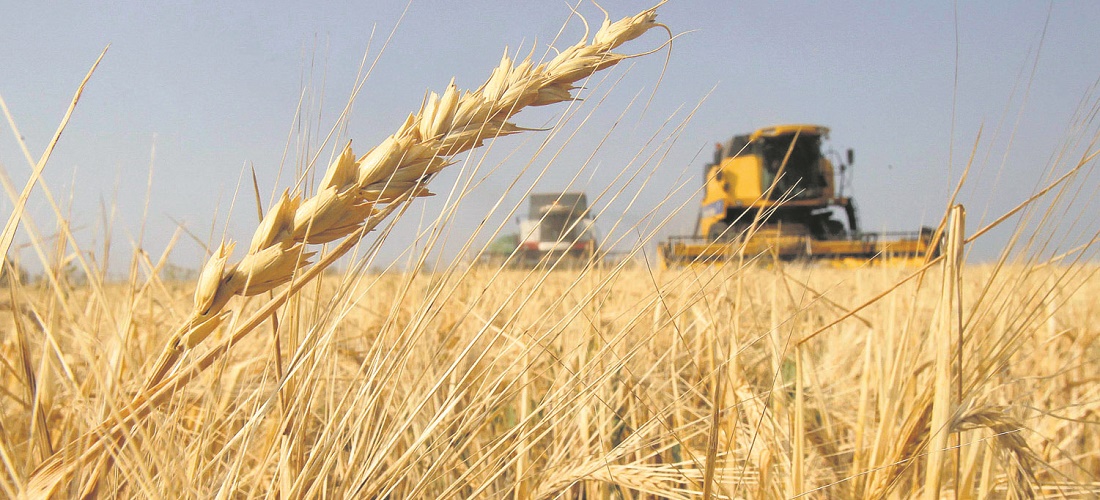
A difficult scenario for wheat importers
Apr, 26, 2022 Posted by Gabriel MalheirosWeek 202218
Much has been said about the wheat supply shock since the beginning of the war in Ukraine. The country and Russia together are responsible for about 30% of the global supply of this cereal. Thus, global demand is struggling to adjust to this sudden shortage.
A recently completed study by hEDGEpoint Global Markets evaluated how importers in the Middle East and North Africa, served almost exclusively by Black Sea wheat producers, are doing.
Data show that most import auctions occurred at the beginning of the second half of the year when the harvest in Russia and nearby countries was about to be complete, guaranteeing the supply. However, the war changed this dynamic and forced wheat flows to behave differently. The rush to buy wheat caused a historically high number of auctions in March, which allowed some countries to build strategic reserves of longer duration.
Egypt, the leader in global imports, claims to have enough reserves to supply the domestic market until the following April harvest, even though two consecutive import auctions were announced and canceled shortly after the war. “The authorities expect to obtain a record volume of local grain at the beginning of the cycle, around 6 million tonnes, which allows them to be self-sufficient by November,” says hEDGEpoint.
The consultancy calls attention to the fact that this autonomy did not inhibit Cairo from trying to secure deals with new suppliers, especially in India, the US, and Argentina – Brazil’s main supplier. “If we consider that high bread prices were one of the complaints before the Arab Spring, it is easy to understand why maintaining subsidies and wheat purchases programs is of paramount importance for Middle Eastern and North African rulers,” assesses them.
Typically, Turkey imports nearly 80% of its wheat from Russia and Ukraine, but that hasn’t stopped its government from saying there is no reason to worry. The Turkish government guarantees that it is possible to buy the cereal from other suppliers.
Other countries, such as Lebanon and Algeria, were blunter in expressing their troubles, stating that their reserves are only sufficient for the next few months, forcing them to organize auctions. On the other hand, Morocco, Jordan, Syria, and Iraq claim to have longer-term supplies, in some cases for more than a year.
In the second half of the year…
The point is that the flow of imports is not slowing down in the second half of the year. On the contrary, importers were forced to search elsewhere because Russia and Ukraine had already shipped the majority of their 2021/22 harvests when the war broke out on February 24, leaving little wheat from that region to be battled over.
Given the lingering uncertainty in the Black Sea (even if the war ends today, some obstacles in exports may endure) and the necessity to ensure cereal flows, the trade networks established in March may strengthen in the second-semester auctions.
Countries and regions such as Argentina, the European Union, and the United States tend to be the biggest beneficiaries of this new wheat international market dynamic. They are now supplying the product to countries in the Mediterranean. Even India and Brazil, which are not usually exporters, are repeating the benefits as they have found opportunities to increase their sales.
Please see below the track record of Brazilian wheat imports from January 2021 to February 2022. The data are from DataLiner.
Brazilian wheat imports |Jan 2021 – Feb 2022 | TEUs
Source: DataLiner (click here to request a demo)
The only question left unanswered pertains to production. For example, in the case of the US, severe drought over winter generated some of the worst crop results ever seen, which could harm shipments. However, the other countries will still plant, and the result will depend much more on the climate than any other factor.
Source: Valor Econômico
To read the full original article, please go to:
-
Dec, 07, 2021
0
CDRJ acquires radars to monitor waterway traffic at ports
-
Grains
Apr, 18, 2022
0
Argentine truckers end strike that threatened grain transportation
-
Ports and Terminals
Sep, 23, 2024
0
Port of Itaqui seeks expansion to keep up with growing grain production
-
Other Cargo
May, 31, 2022
0
Uruguay finds new markets for butter exported to Russia, including Brazil


